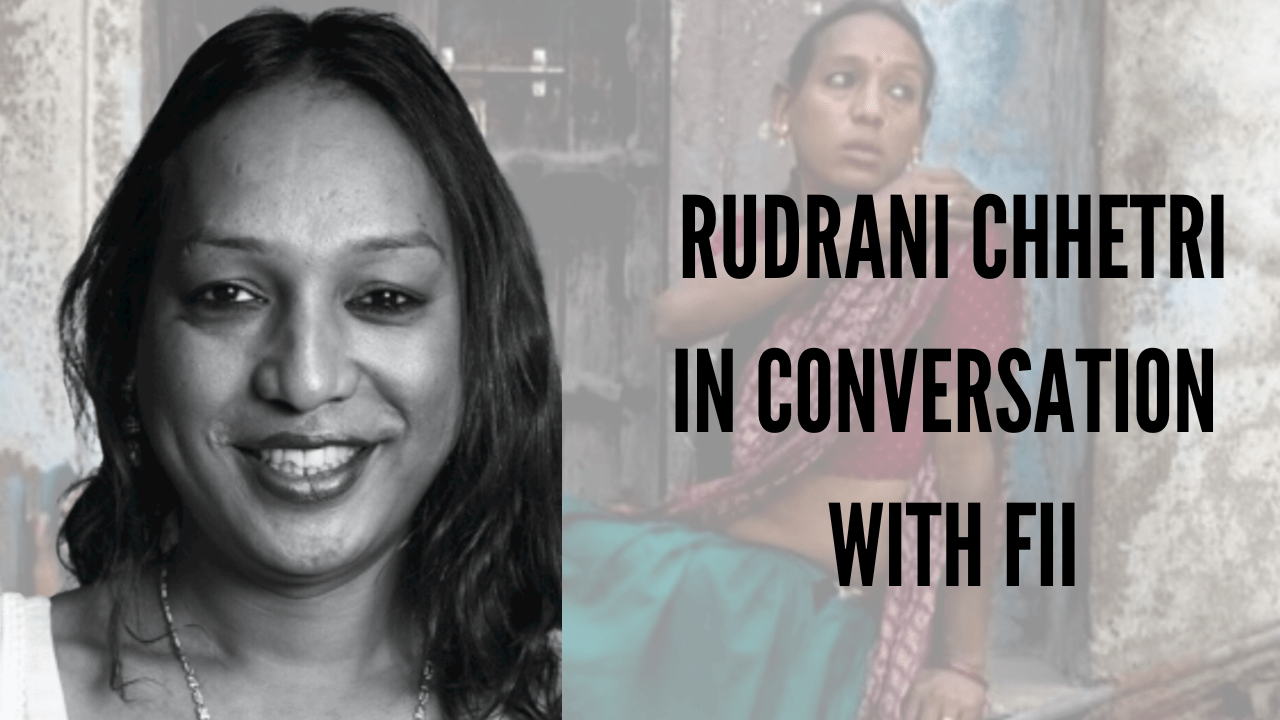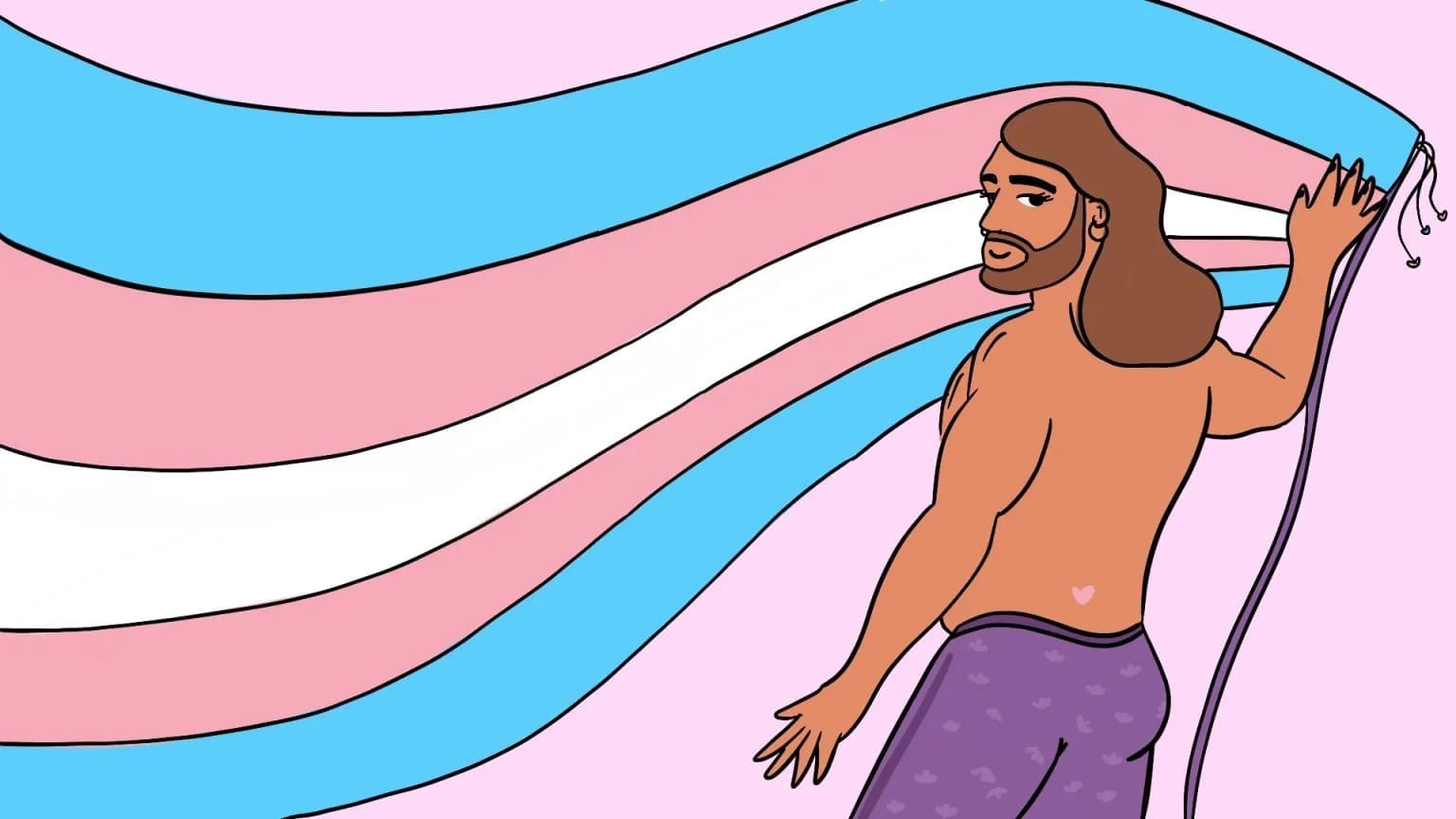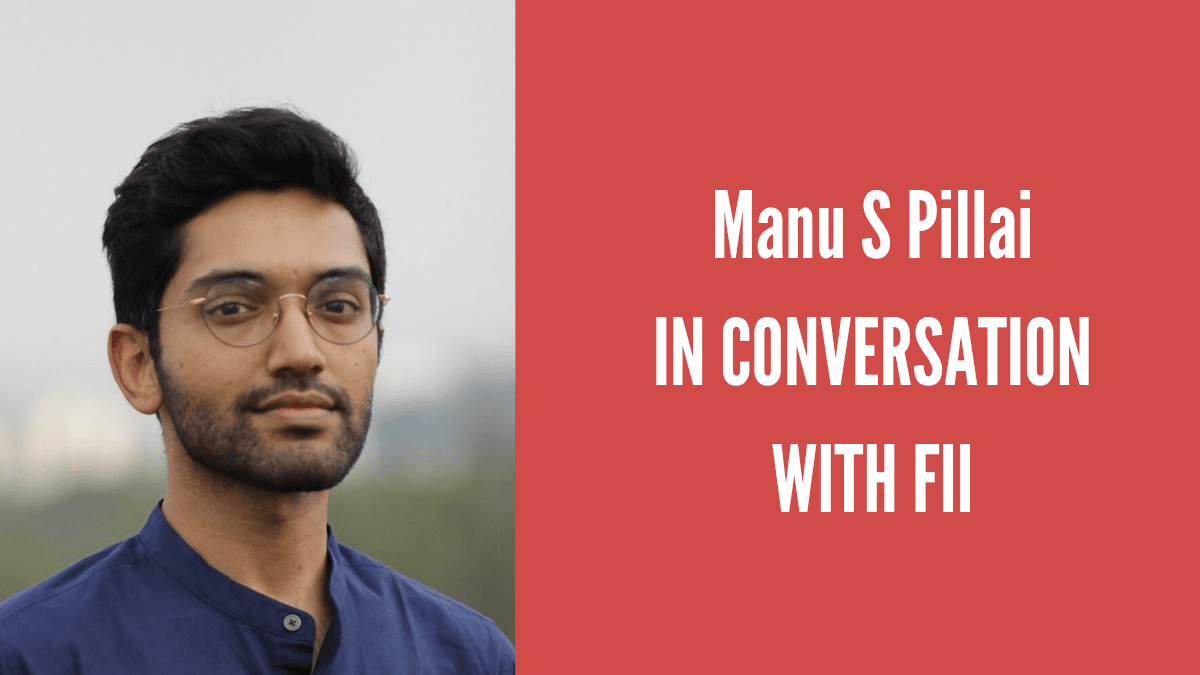Trigger Warning: This interview mentions sexual abuse.
Rudrani Chhetri is a Delhi-based activist who has worked immensely for LBTQIA+ rights. Being a trans woman herself, she set up MITR Trust, an organisation for the queer community aimed at developing a space where LGBTQIA+ persons can be treated with respect and dignity. Rudrani has also spearheaded many initiatives like – BOLD, India’s first trans modelling agency. Having worked as a model herself, Rudrani starred in Vikas Khanna’s The Last Colour (2020) in the role of Anarkali.
Rudrani Chhetri’s initiatives reflect her unwavering commitment to social justice and her determination to create a more inclusive and equal society. In this interview, Rudrani talks about the conception of her initiatives, the nature of challenges she, as well as the community encounters, and sexual education and queer representation in film and media.
FII: What did you visualise for yourself growing up? What was your childhood like?
Rudrani: Being a child, it was all normal to me. The problem starts when you become a teenager with all these confusions, for instance, your likings are very different from other people like that of your friend, cousin or brother. The gender binary is so rigid in the sense that people like us struggle to even exist and express themselves. Talking about childhood, I’ve gone through all phases. It was quite difficult to explain my situation at the house, at school, at educational places, and other places where you can bond, make friends or share things. These were the basic problems during childhood and by childhood, I mean when you are under 18 because you’re still a child. You don’t even have the right to take any decisions for yourself, so most of the time you’re dependent, vulnerable and need the right guidance.

For me as a child, who was recorded and assigned as male at birth, it was quite difficult to understand who I am, because I was born in 1978. When I was growing up it was not like today’s world, I come from the age of dinosaurs where there were no resources, no civil society organisations, no smartphones, no internet. So, a person like me, has to go through a lot of struggle.
I have been running this centre since 2005, and I have come across a lot of stories where I see myself as a privileged trans person. This is what my childhood was all about but of course there was sexual abuse, heartbreak, a lot of disappointment and rejection. My ambition was to be an artist but I was not able to fulfill that.
Rudrani Chhetri
It was all so problematic but thankfully I was in a school where I was not harassed. My parents were not entirely comfortable and they were also not stressed about it. I did have a very balanced life. I have been running this centre since 2005, and I have come across a lot of stories where I see myself as a privileged trans person. This is what my childhood was all about but of course there was sexual abuse, heartbreak, a lot of disappointment and rejection. My ambition was to be an artist but I was not able to fulfill that.
FII: The community-based organisation that you founded – Mitr Trust – aims to make a safe space for all trans persons. Would you like to share what motivated you to create such an organisation?
Rudrani: When I was young, I was influenced by everything around me. I always wanted to marry, have a big bungalow, have a dog, and a big garden with a big swimming pool but things never happen the way you decide. So, when I grew up that is when I was almost 18 +, I started going out of my house for making friends. I reached out to an organisation whose team lead worked for the LGBTQ+ community. They were heading one of the HIV programmes for MSM (men who have sex with men). When I went there for the first time, it was okay for them because they were educating us about HIV prevention. But when I visited the place the very next day they said “If you want to come here you have to behave normal.”
This was when I was living with my parents and was dependent. I used to wear clothes as any other random person would but my femininity was out of control. For a lot of people, it was– I don’t even relate with this term – “abnormal”. This is when I stepped out and there were other people who thought like me and facing the same things that I have been through. We not only wanted information about health, but we also wanted information about ourselves. “How can I do good in life? Who am I? Do I have a medical problem? Is it curable?” As a young person with no resources to know more about the self, you go through all these questions in day-to-day life.
We formed a small group where we used to meet in parks, in small dhabas with very little money and chai. One of my friends, his name is Aditya Bandhopadhyay, who was also part of the fight against 377 said ‘If you want to do this and help yourself and others then get structure, get formalised’. Section 377 was still active at that time and many people were unnecessarily harassed because of their gender or sexuality. This is how we started Mitr in 2005. Slowly we went from support group meetings to more interventions and programmes and now we are here!
Rudrani Chhetri
Eventually, we formed a small group where we used to meet in parks, in small dhabas with very little money and chai. One of my friends, his name is Aditya Bandhopadhyay, who was also part of the fight against 377 said ‘If you want to do this and help yourself and others then get structure, get formalised’. Section 377 was still active at that time and many people were unnecessarily harassed because of their gender or sexuality. This is how we started Mitr in 2005. Slowly we went from support group meetings to more interventions and programmes and now we are here!
FII: In what will soon be two decades of the Mitr Trust, have you noticed any changes in the challenges faced by the trans community or have the challenges remained the same? If so, could you detail them?
Rudrani: Challenges are almost the same, I won’t say there has been any improvement besides a little bit of dialogue. Even then, we are not sure whether this information is right or wrong. In India, we get a lot of our education from mainstream television media and mostly it is not good content. People learn about the trans community and they talk about it and spice it up a little. They show us as evil sexual predators and someone who is a threat to society. But after the NALSA judgement and 377 thankfully, a lot of universities, colleges and companies have come forward but I think we need to do a lot of work.
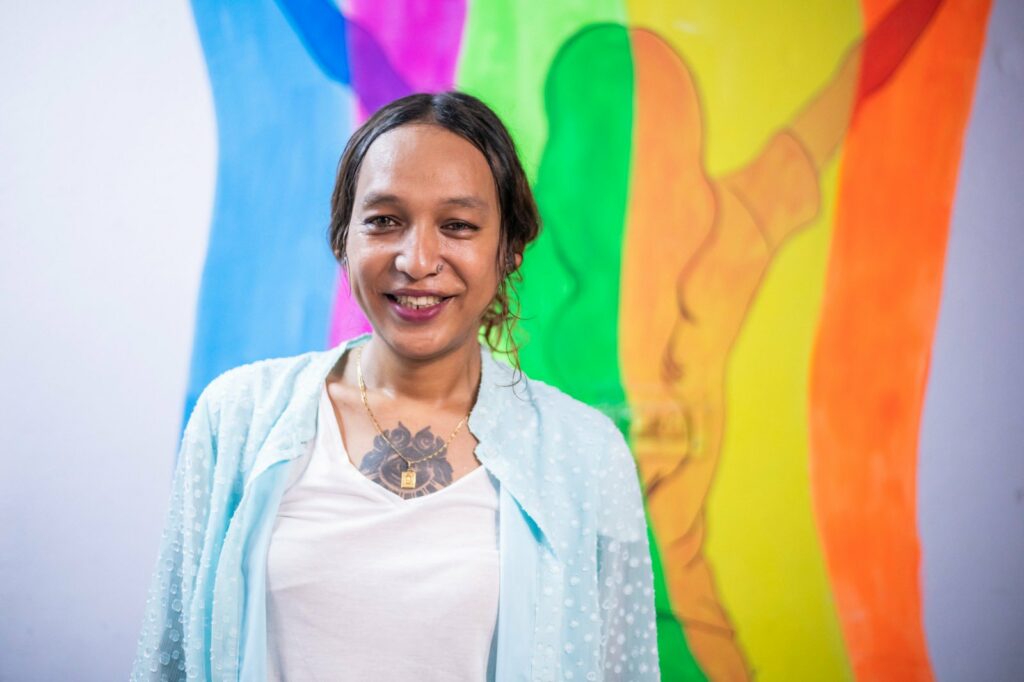
From zero we have reached only 5 -10% and we have to do a lot more. So many people think that some of them, just because of their sexuality and gender, don’t deserve basic things. So many teachers in our schools don’t even know who transgender people are. Even today, people have this idea that trans people are those people who are born intersex. They think we are born with ambiguous genitalia. This is where we have lacked, I think, in our progress. I just see 5-10%, we must do a lot of work and it has to start from scratch.
Do you get to see trans representation in schools, colleges, universities, and ministries on a bigger scale? When it happens, it becomes this masala news – ‘India’s First Transgender in XYZ’.
Rudrani Chhetri
I think learning should happen when we are young. What you teach small children never goes away even if you grow up. I say this because sometimes I do it to myself. But I, as a responsible human being, make myself realise ‘Rudrani what you’re doing it’s wrong and you have to be careful.’ Maybe you trip up sometimes and you make mistakes but it will be nice if you’re sincerely sorry for it and try not to do that again. So change comes through these small little things. Do you get to see trans representation in schools, colleges, universities, and ministries on a bigger scale? When it happens, it becomes this masala news – ‘India’s First Transgender in XYZ’.
We must have institutes that make it their responsibility to spread awareness so they cannot run away from it. For how long can you keep your kids away from sex education? In other countries, they start it in 6th or 7th grade. I think we have come to the point where we have been able to educate and sensitise these many people and we can do much more. We can go from 10 to another 20%.
FII: In addition to your work as an activist, you are also a model and have worked to build BOLD, India’s first Trans Modelling Agency. What do you think is the significance of trans bodies in the beauty industry?
Rudrani: The modelling agency was not something I planned, I never thought of myself as a model, it is an image in which I didn’t fit in but still it started when I was trying to enter a shopping mall somewhere in 2014. I was not allowed to get in, it was the end of September, and I wanted to book a restaurant for my birthday and they did not let me in saying – “aap jaise logo ke liye yaha kuch milta nahi hai, app jaise log allowed nahi ho” (“There is nothing for people like you to get from here, you people are not allowed here“). I stood there and I tried convincing them and it got a little heated up. It got me thinking about who are we, what kind of food we eat, what kind of clothes we wear and what kind of air we breathe, which made me realise that we are not part of the idea of a mall with big brands and shopping. Other people get visibility from modelling and magazines but people always see us or people from the trans community in NGOs, with our sad stories and sad documentaries.
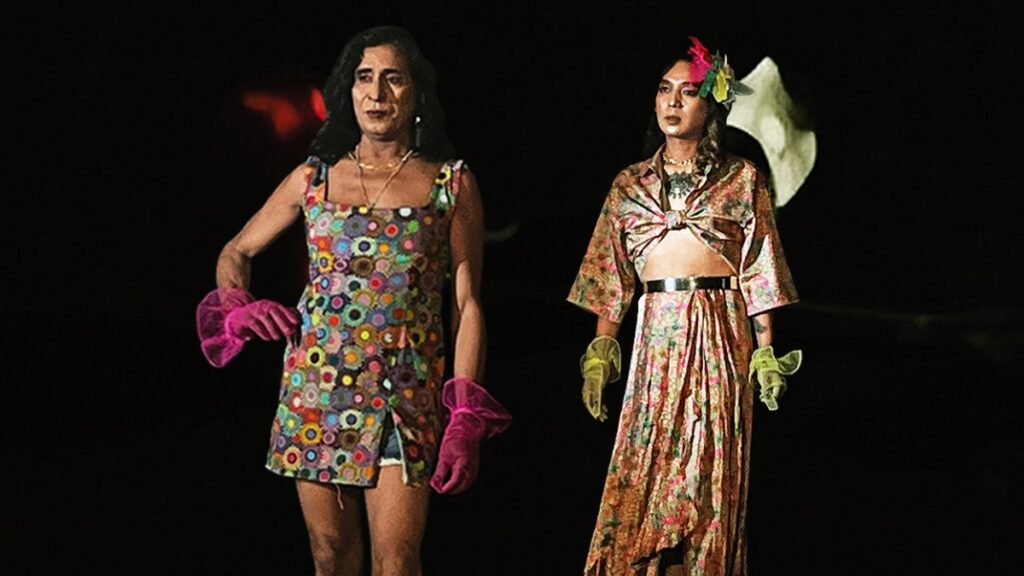
I thought it was high time we need to make our own space in all these workplaces. For how long can people think “yeh log toh bohot bechare hai inn log ko sab silai machine khareed do“.
I run a shelter home in Delhi and there are a lot of people who want to do different things, like one of the trans men who want to become an IAS officer. One day we want to see ourselves in big posters, big brands like Dior or Chanel. I have personally been featured on the cover page of Outlook. A lot of my girls have also done films and modelling assignments.
Rudrani Chhetri
I run a shelter home in Delhi and there are a lot of people who want to do different things, like one of the trans men who want to become an IAS officer. One day we want to see ourselves in big posters, big brands like Dior or Chanel. I have personally been featured on the cover page of Outlook. A lot of my girls have also done films and modelling assignments.
It may not be glamorous. We don’t even have an office but whenever we get the opportunity, we do it, we put in our own money. Even these agencies make us realise “ki aapko hum itna bada mauka de rahe hai.” We put in our own money for travel and we buy things for ourselves. Sometimes it breaks my heart but yes this is how the agency started.
FII: You have spoken about the role education played in enabling you to have a platform to bring about change. Do you think a better curriculum, more sensitive to gender sexual minorities, would play a major role in transforming the discourse around the trans community today?
Rudrani: I believe sometimes you take up a job and it comes with a lot of responsibility. Educational institutions have badly, badly failed in their responsibility from primary to higher education. I think we should have one chapter at least for a start, on any trans person, in English literature or Hindi textbooks. You don’t have to love the community but at least you know about it. So, when you grow up to become a doctor, a scientist, a police officer, or a professor, you are informed. A lot of people behave very badly, I don’t blame them, why would I blame them? It’s not their fault.
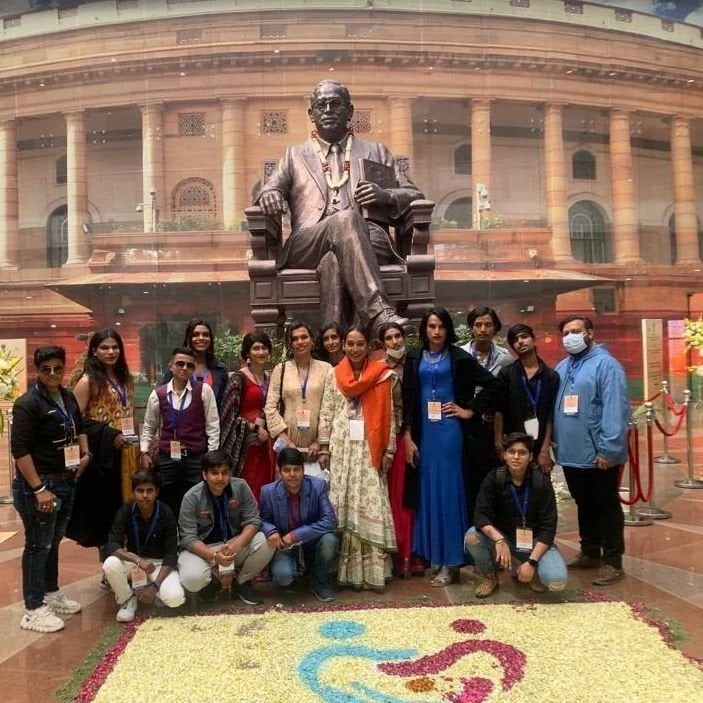
This is how they’ve been taught and this is how their parents were taught. I think all we need to do is break this chain and the younger generation today is actually doing a great job. Those who I have met have literally gone to their parents and asked them “aap itna bura kyu bolte hai inke baare mei?“. I can see that this chain is breaking. This legislation, law, structure and policy are all the skeleton, society is the blood and flesh.
As members of society, we need to intervene and fulfil our duties and responsibility of holding people accountable if we see them harassing anyone in a public place.
FII: You played the character of Anarkali in the movie The Last Colour (2019). How important is trans representation in media?
I think it is very important. I don’t say that other actors and actresses can’t play the character of a trans person. They can do so because an artist is an artist and this is their job but I fail to understand when you do not have any information about the community and you just end up making something that makes no sense instead of helping the trans community. Earlier there used to be no serious representation of trans people, they were just the laughing stock. But now, if you don’t want to hire any actor, at least make your workspace inclusive. If you don’t want to research, just live with a trans person, and get informed.
Also, if there are people in the community who are good at this job, then they should be given a chance. There are always people who bring commercial value but for how long can you keep rejecting people saying they are not professional?
When I went to the shoot of a film, for the purpose of costume fittings, they started measuring me and gave instructions for almost three hours. During this time, everyone looked very scared. Later the costume designer said “Rudrani we were all so scared, we didn’t know how we would handle you but you’re like any of us.” She sincerely apologised and promised that she wouldn’t be like that anymore. So, the experience of the film was good and I hope I keep getting such roles. This might sound cliché but I want to work for others in the community and use my privilege for the same.
FII thanks Rudrani for her time and illuminating insights into her work. You can follow Rudrani on Instagram.
About the author(s)
Sakshi (she/they) is a student pursuing History at St. Stephen's College, Delhi University. They are interested in issues of gender, sexuality, education and culture. They love game nights, a good film and a sleeping in.
